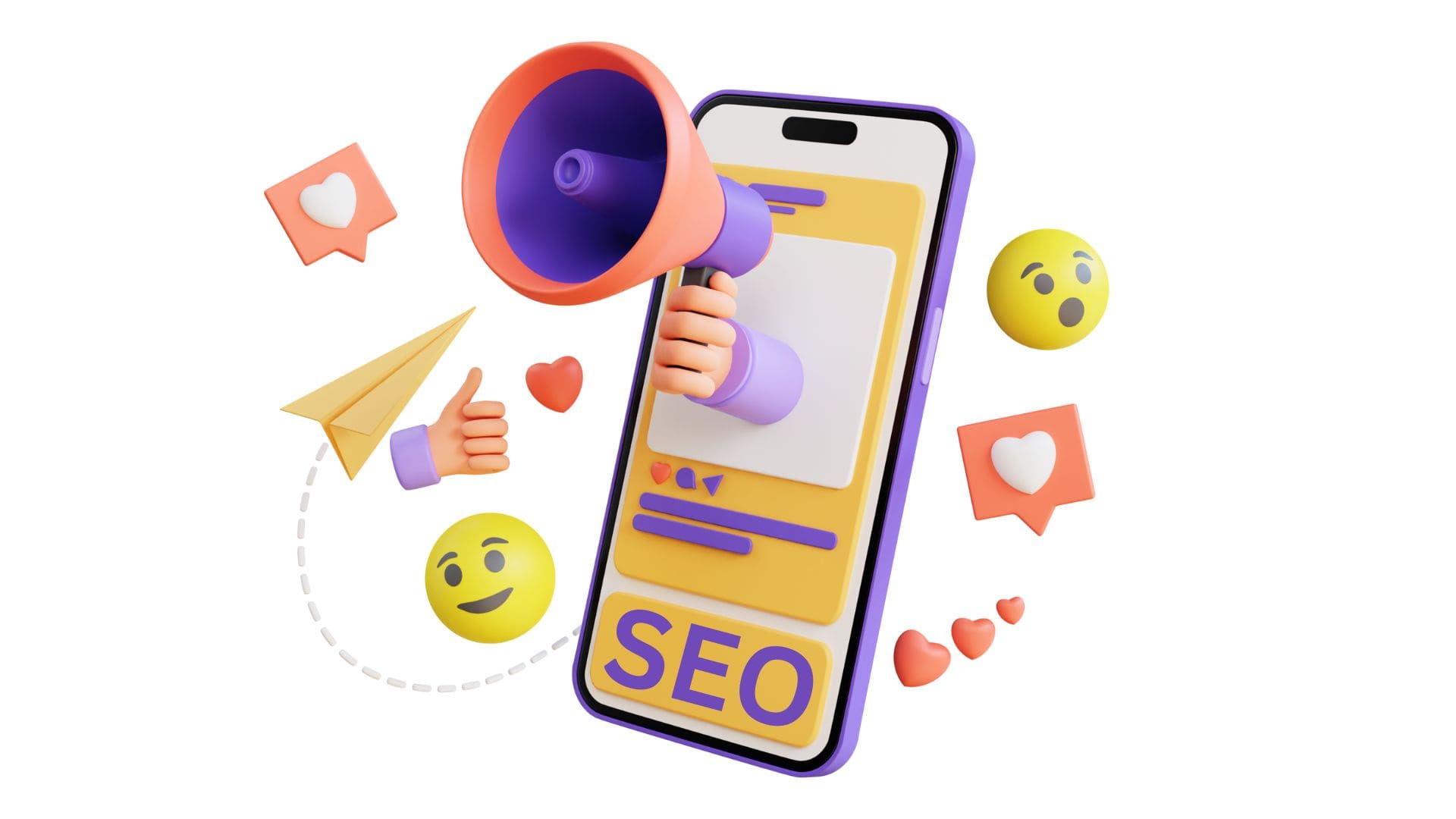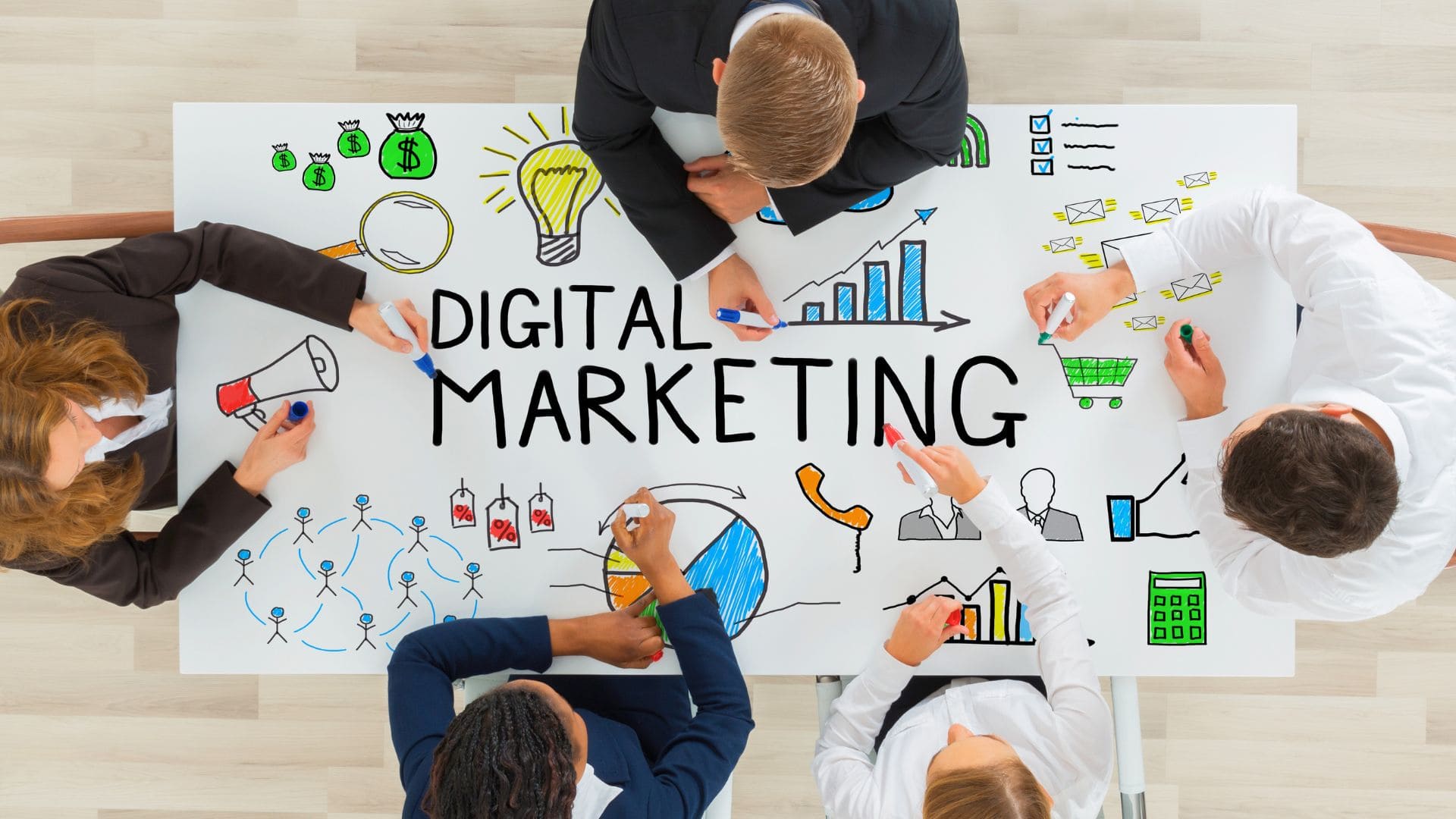Digital marketing generally means internet marketing activities that are delivered on a computer, phone, tablet, or other display screen. It can appear in many various forms, such as online video, display advertisement, search engine marketing, paid social media advertisement and social media updates.
Digital marketing has blown onto the marketing scene over the last several years, and its effects have been anything but minor. Old-line companies and old-time marketers have been scrambling to keep up with the ever-changing world of digital marketing as customers, prospects, and clients have continued to move ahead in this new era. But companies cannot afford to be left behind by shifts in how individuals attempt to buy, so they have entered the new world of marketing.
Understanding the Digital Marketing Landscape
Digital marketing is more than merely having a website or social media posts. It is a complex system of interconnected strategies acting in harmony to draw in, connect with, and convert your audience. As we progress throughout 2025, businesses have amazing opportunities and fascinating challenges in the digital space.
The greatest thing about digital marketing is its flexibility and quantifiability. While older forms of marketing just aren't conducive to this, digital methods allow you to track every interaction, track your return on investment (ROI), and adjust in real time. This adaptability makes it a worthwhile tool for businesses of all sizes.
Key Components of Successful Digital Marketing
Search Engine Optimization (SEO)

Gone are the days when SEO was just about keyword stuffing. Modern SEO requires a sophisticated approach that includes:
- Technical website optimization ensuring fast loading speeds and mobile responsiveness
- High-quality content that answers user queries comprehensively
- Local SEO strategies for businesses serving specific geographic areas
- Authority building through quality backlinks and expert content
Content Marketing

Content remains king in the digital realm, but it's evolved beyond simple blog posts. Effective content marketing now encompasses:
- Data-driven content strategies aligned with user search intent
- Multi-format content including videos, podcasts, and interactive elements
- Storytelling that builds emotional connections with your audience
- Regular content audits to ensure relevance and performance
The Power of Social Media Marketing
Social media has transformed from a simple communication platform to a powerful marketing channel. Today's successful social media strategies require:
Platform-Specific Approaches
Different platforms serve different purposes:
- LinkedIn for B2B networking and thought leadership
- Instagram for visual storytelling and product showcases
- Facebook for community building and targeted advertising
- TikTok for reaching younger demographics with creative content
Engagement Strategies
Building meaningful connections requires:
- Consistent brand voice across all platforms
- Regular interaction with followers
- User-generated content campaigns
- Influencer partnerships that align with brand values
Email Marketing Excellence

Email marketing continues to deliver one of the highest ROIs in digital marketing. Success in email marketing depends on:
Strategic Planning
- Sophisticated segmentation of your email list
- Personalized content delivery
- Automated workflows for different customer journeys
- Regular testing and optimization
Best Practices
- Mobile-optimized email designs
- Clear calls-to-action
- A/B testing of subject lines and content
- Integration with your overall marketing strategy
Digital Marketing Metrics That Matter
To ensure success, focus on these key performance indicators:
Traffic Metrics
- Overall website traffic
- Traffic sources
- Time on site
- Bounce rate
Conversion Metrics
- Conversion rate by channel
- Cost per acquisition
- Customer lifetime value
- Return on ad spend
Creating Your Digital Marketing Strategy
Step 1: Define Clear Objectives
Start with SMART goals:
- Specific targets for growth
- Measurable outcomes
- Achievable within your resources
- Relevant to your business objectives
- Time-bound deadlines
Step 2: Know Your Audience
Develop detailed buyer personas:
- Demographic information
- Pain points and challenges
- Preferred communication channels
- Purchase behavior patterns
Step 3: Choose Your Channels
Select platforms based on:
- Where your audience spends time
- Available resources and budget
- Content types that resonate with your audience
- Competition analysis
The Future of Digital Marketing
As we look ahead, several trends are shaping the future of digital marketing:
Emerging Technologies
- AI-powered personalization
- Voice search optimization
- Augmented reality experiences
- Blockchain in digital advertising
Privacy and Data Protection
- Cookie-less tracking solutions
- Enhanced data protection measures
- Transparent data collection practices
- Privacy-first marketing strategies
Building Your Digital Marketing Career
For those interested in pursuing a career in digital marketing, consider these pathways:
Entry Points
- Digital marketing certifications
- Freelance projects
- Agency positions
- In-house marketing roles
Skills Development
Focus on developing:
- Analytics and data interpretation
- Content creation and strategy
- Technical SEO knowledge
- Social media expertise
Conclusion:
Digital marketing success doesn't happen overnight. It requires consistent effort, continuous learning, and regular adaptation to changing trends. Whether you're working with a digital marketing consultant or managing campaigns in-house, focus on creating value for your audience while maintaining a data-driven optimization approach.
Ready to elevate your digital marketing game? Start by auditing your current efforts and identifying areas for improvement. Remember, the most successful digital marketing strategies are those that evolve with your business and audience needs.



